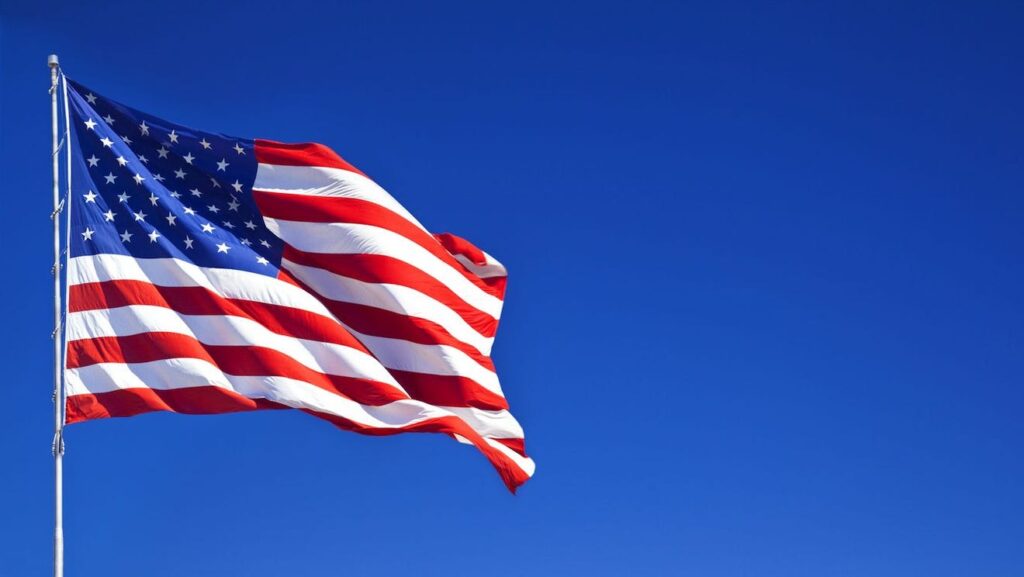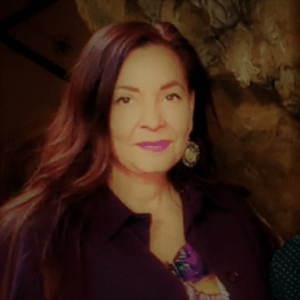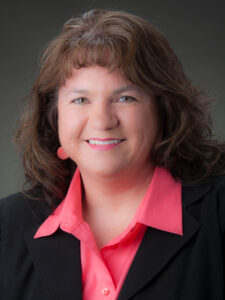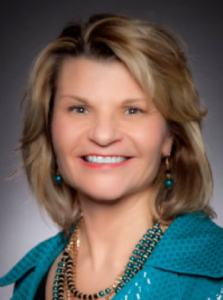Small Urban,
Rural & Tribal
Center on Mobility
About SURTCOM
The Small Urban Rural and Tribal Center on Mobility (SURTCOM) is a U.S. Department of Transportation Tier 1 University Transportation Center that combines the talents of the Western Transportation Institute at Montana State University, Upper Great Plains Transportation Institute at North Dakota State University, and the Urban and Regional Planning Program at Eastern Washington University (EWU). SURTCOM seeks to enhance mobility in small urban, rural, and tribal areas through research, technical assistance, and capacity building.
Our Focus
Each of the university partners has taken a different focus in this project with EWU primarily focused on the mobility needs and challenges faced by tribal communities. Specifically, SURTCOM at EWU focuses on a region consisting of 71 federally recognized American Indian reservations extending across nine states: Colorado, Idaho, Montana, North Dakota, Oregon, South Dakota, Utah, Washington, Wyoming.
These reservations also span across five Bureau of Indian Affairs (BIA) regions, four Indian Health Services (IHS) regions, and encompasses over 10 unique tribal language groups. Each of these reservations is home to one federally recognized tribe, with the exception of the Wind River Reservation, which is home to both the Eastern Shoshone and Northern Arapaho tribes.
Principle Investigators
- Margo Hill, JD, Associate Professor, Eastern Washington University
- David Kack, MBA, Director, Western Transportation Institute, Montana State University
- Jill Hough, PhD, Associate Professor, North Dakota State University
Service Area
About Eastern Washington University
Eastern Washington University’s Urban & Regional Planning Program offers a Bachelor of Arts in Urban and Regional Planning (BA-URP), a Master of Urban and Regional Planning (MURP), and an Executive Certificate in Tribal Planning. EWU has a long history of support and active engagement with Native American planning efforts. EWU faculty and staff have worked with, and continue to work with, all aspects of tribal communities throughout the U.S., including elected tribal leaders and their staff, as well as tribal community members on and off reservations.
EWU Urban & Regional Planning has:
- Established an EWU Tribal & Technical Assistance Program for a Summer Institute in Tribal Planning;
- Administered the Northwest Tribal Technical Assistance Program (NW TTAP) & the Alaska Tribal Technical Assistance Program (AK TTAP); and
- Created a graduate-level Executive Certificate Tribal Planning Program and a BA-URP degree specialization in tribal planning.
Graduates of our degree programs have gone on to work in and outside Indian Country in a variety of professional planning capacities, such as community development, economic development, land use, housing, transportation/transit, and environmental planning. They serve in positions such as elected leaders, consultants, tribal staff, and entrepreneurs across the nation.
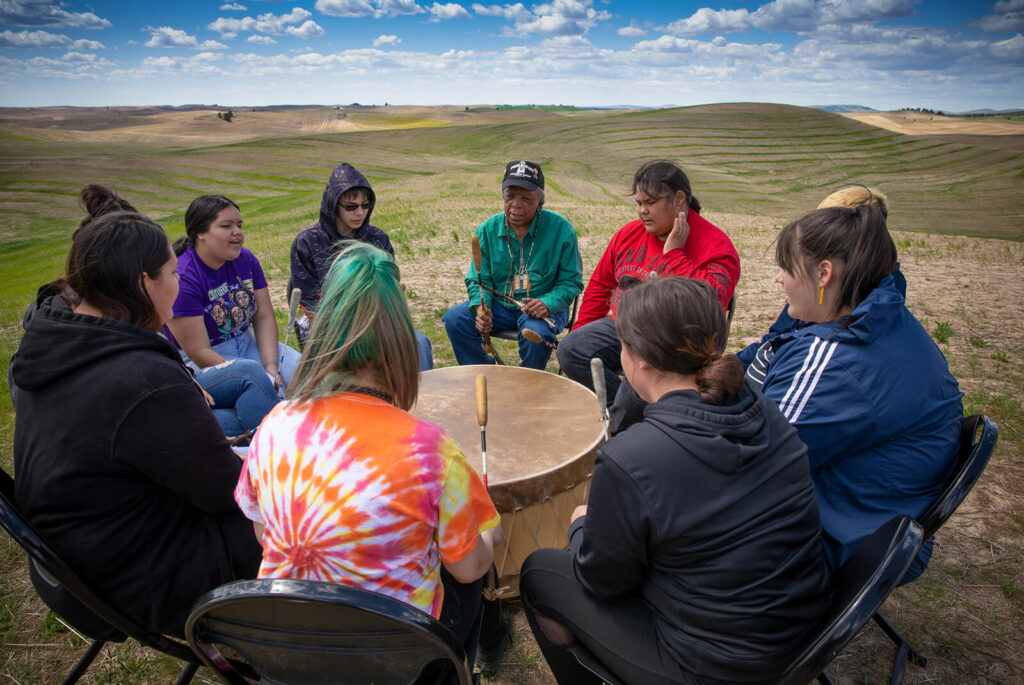
SURTCOM’s Mission
The mission of the Small Urban, Rural, and Tribal Center on Mobility is to conduct research and provide leadership, education, workforce development, and technology transfer in all transportation-related aspects of mobility for people and goods, focusing specifically on small urban, rural, and tribal areas.
SURTCOM works to improve the mobility of people and goods, while also addressing focus areas such as:
- Increase access to opportunities that promote equity in connecting regions and communities, including urban, rural, and tribal communities
- Develop innovations to improve multi-modal connections, system integration, and security
- Develop response options to modal shifts
- Enhance access to ridesharing and alternative forms of transportation including, especially transit
- Increase active transportation modes, including walking and cycling
- Increase land use and transportation planning capacity
- Increase implementation of Smart Cities planning and development for tribal and small urban communities
- Increase knowledge on the link between health and transportation
- Increase workforce development and capacity building through the dissemination of practice-ready research
Projects
- Healthcare deserts: Identifying areas of limited access in Washington State. (Poster) American Associate of Geographers National Conference, April 2019. Washington, DC.
- Healthcare deserts: Identifying areas of limited access in Washington State. (Poster) Transportation Research Board Committee on Native American Transportation, January 2019. Washington, DC.
- Mapping healthcare deserts: Identifying areas of limited access in Washington State. (Poster) National Tribal GIS Conference, November 2018. Albuquerque, NM.
- Mobility and access on American Indian reservations in the Western United States. (Poster) Tribal Planning and Western Planner Conference, August 2018. Fort Hall, ID.
- American Indian accessibility to preventative healthcare. (Poster) American Planning Association National Planning Conference, April 2018, New Orleans, LA.
- Mobility and access on American Indian Reservations in the Western United States. (Poster) Transportation Research Board Committee on Native American Transportation, January 2018. Washington, DC.
- “Understanding Traffic Safety Culture and Attitudes on Indian Reservations”
Authors: Li, Hill. - “Tribal Mobility for American Indian Reservations: Complexity for Tribal Transportation.”
Authors: Winchell, Hill-Ferguson, Rolland, Campobasso, Pomerinke. - “Tribal Mobility for American Indian Reservations in the Nine Western United States: Contexts & Frameworks for Tribal Empowerment in Transportation”
Authors: Winchell, Hill, Rolland, Scully, Becker. - “Mobility and Resource Accessibility for Federally Recognized American Indian Reservations within the Western United States”
Authors: Becker, Scully, Hill, Winchell, Rolland. - “Locational Hospital Accessibility & the role of Federally Recognized American Indian Reservations within Washington State”
Authors: Scully, Becker. - “Colville Confederated Tribes (CCT) Community Involvement & Citizen Participation Survey for CCT Transit”
Authors: Campobasso, Winchell.
- Hill, M.L. & Rolland, R. (2018, January). Transportation Research Board. The National Academies of Sciences, Engineering and Medicine. Washington, D.C.
- Becker, Z. & Scully, J. (2018, March). Mobility and access in a tribal context. NW Tribal Transportation Symposium. Airway Heights, WA.
- Hill, M.L. & Rolland, R. (2018, September). Creating a Culture of Traffic Safety. National Tribal Transportation Conference, Tucson, Arizona.
- Hill, M.L. (2018, October). Emerging Mobility and Safety Issues I the Pacific Northwest. PacTrans Region 10 and CSET Transportation Conference. Fairbanks, AK.
- Hill, M., Rolland, R.(2019, January). Participated in the Transportation and Infrastructure Committee and provided and update on SURTCOM goals and objectives. Hill Chaired the Drug and Alcohol Prevention Committee and Presented Videos from Drug Prevention Summit. Transportation Research Board 98th Annual Meeting. Washington D.C.
- Hill, M., (2019, February). “Developing a Culture of Traffic Safety.” NW Tribal Transportation Symposium. Airway Heights, WA.
- Hill, M. (2019, March). Presented Tribal Traffic Safety Coyote books & CDs to Hearts Gathered Tribal Language School. Omak, Washington.
- Hill, M. Ning Li, (2019, April). “Colville Tribal Mobility and Traffic Safety.” Western Social Science Association, San Diego, California.
- Hill, M. (2019, April). “What is Urban Planning, Tribal Planning and Tribal Mobility.” Haskell Indian Nations University, Lawrence, Kansas.
- Hill, M., Campobasso, A. (2019, May). Update with EWU SURTCOM. NW Tribal Transportation Planning Organization. Airway Heights, WA.
- Hill, M., Rolland, R. (2019, May). Affiliated Tribes of Northwest Indians (ATNI), present SURTCOM updates to Transportation Committee. Hill, M., Chair, Drug Prevention Committee sessions. Airway Heights, WA
- Hill, M. (2019, May). Keynote speaker. Cultural Resource Protection Summit. Suquamish, WA.
- Hill, M. (2019, June). Yakama Nation Tribal Treaty Days Parade and Community Fair. Yakama Tribal Traffic Safety Committee, Toppenish, Washington.
- Hill, M. (2019, June) “Federal Indian Law, Tribal Jurisdiction and Tribal Traffic Safety.” Spokane Tribal TANF Youth Program. Spokane, WA
- Hill, M., Heller, M. (2019, June). Affiliated Tribes of Northwest Indians (ATNI) Climate Change Camp. Flathead Lake, Montana.
- Hill, M. (2019, August), “Transportation, Tribal Jurisdiction and Federal Indian Law.” Washington State Transit Authority (WSTA) Public Transportation Conference. Seattle, Washington.
- Hill, M., Campobasso, A., Rolland, R. (2019, September) “Pedestrian safety strategies: Policy implementation, infrastructure and engagement on the Spokane Tribe”. National Transportation in Indian Country Conference. Big Sky MT.
- Hill, M. (2019, September). “Tribal Transit’s Role in Countering Human Trafficking and Safe Mobility of Indigenous Women.” National Tribal Transportation in Indian Country, Big Sky, MT.
- Hill, M., Campobasso, A., Rolland, R. (2019, September) TRB Native American Issues Committee mid-year. Big Sky, MT
- Rolland, R. (2019, October). PACTRANS-CSET Regional Transportation Conference, University of Washington. Seattle, WA.
- Hill, M., Scully, J. (attended) (2019, October). “Opioid Crisis in Tribal Communities – Pathways to Recovery.” Association of Collegiate Schools of Planning (ACSP), Greenville, South Carolina.
- Hill, M., Campobasso, A. (2019, October). Affiliated Tribes of Northwest Indians (ATNI). Provided comments to Tribal Transportation Committee on Tribal Transit and Hill Chaired Drug Prevention Committee. Suquamish, Washington.
- Hill, M. (2019, November). “MMIW – Murdered and Mission Indigenous Women.” South Hill Library, Spokane, Washington.
- Hill, M. (2019, November). “Missing & Murdered Indigenous Women – Safe Mobility of Indigenous Women.” Gonzaga University, Spokane, Washington.
- Hill, M. Presiding Officer, Lectern Session (2020, January). “Incorporating the Opioid Epidemic into Highway Safety Planning.” Transportation Research Board (TRB) 99th Annual Meeting January 13, 2020. Washington D.C.
- Hill, M. Presiding Officer, Lectern Session (2020, January). “Missing and Murdered Indigenous Women: Implications for Transportation.” Transportation Research Board (TRB) 99th Annual Meeting January 15, 2020. Washington D.C.
- Campobasso, A. (2020, January). “Tribal Mobility & Sustainability- Effects of Climate Change” Transportation Research Board (TRB) 99th Annual Meeting January 15, 2020. Washington D.C.
- DeWeaver, N., Winchell, D., Sultan, S. (2019, October). “Understanding and Using Census Data for Tribal Transportation Programs.” Transportation Research Board (TRB) Webinar October 17, 2019. Online.
- Reservations in service areas
- Hospital access
- Resources
- March 4 – Lutheran Community Services presentation by Margo Hill, MMIW & Human Trafficking
- March 15 at 6:30 p.m. – Environmental Justice at Gonzaga, Angelena – Effects of Climate Change on Indigenous Communities
- April 11 from 10:30-11:30 a.m. – Angelena speaking for Diversity on ITE Panel Discussion with Climate Change
- April 14 – Margo speaking for WSDOT at State Conference on Tribal Governance 101
- April 19 – Margo speaking for WSDOT again on Tribal Planning 101
- April 27 – Gonzaga Bi-Corp presentation on Environmental Justice & Case Studies of Tribes & the Effects of Climate Change, lack of funding – legislation, sustainability, resiliency, and Adaptation Planning – Angelena Campobasso
- April 28 – SFCC Politics of Place – Margo Hill
- April 30 – Margo speaking at Oregon Transportation Conference – Mobility, Equity, & MMIW
- May 24 – 27 – Margo speaking on Tuesday the 25th ATNI Drug Prevention Committee panelist
EWU SURTCOM continues the work and activities provided by the former NW TTAP and AK TTAP programs while emphasizing new research that addresses critical needs for mobility and will lead to data-driven policies for tribal communities.
Notably, SURTCOM has helped to organize the annual Northwest Tribal Transportation Symposium, National Transportation in Indian Country Conference, with workshops on leadership, safety, and mobility.
SURTCOM is actively working with American Indian Business Leaders (AIBL) & American Indian Science & Engineers (AISES) organizations towards educational outreach with local area high schools and tribal colleges [link to the national AISES & AIBL] to provide ongoing education in the fields of urban, rural, tribal, transit, transportation, community, economic development, land-use, housing, parks planning, science, and engineering by assisting native youth in these much needed planning-professions for Indian Country and surrounding communities.
TCC 2020 Hall of Fame
Thanks to SURTCOM’s dedication to mobility access and equity for all, SURTCOM has been inducted into the Transportation Choices Coalition’s Hall of Fame for 2020.
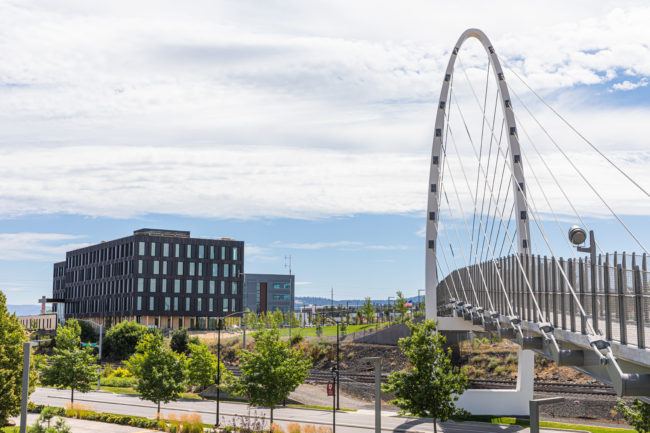
American Jobs Plan Details Released
The “American Jobs Plan” includes $571 billion in additional spending on transportation infrastructure and $361 billion in spending on other kinds of infrastructure – all of which is supposed to be in addition to ongoing program spending, not a replacement for existing spending.
